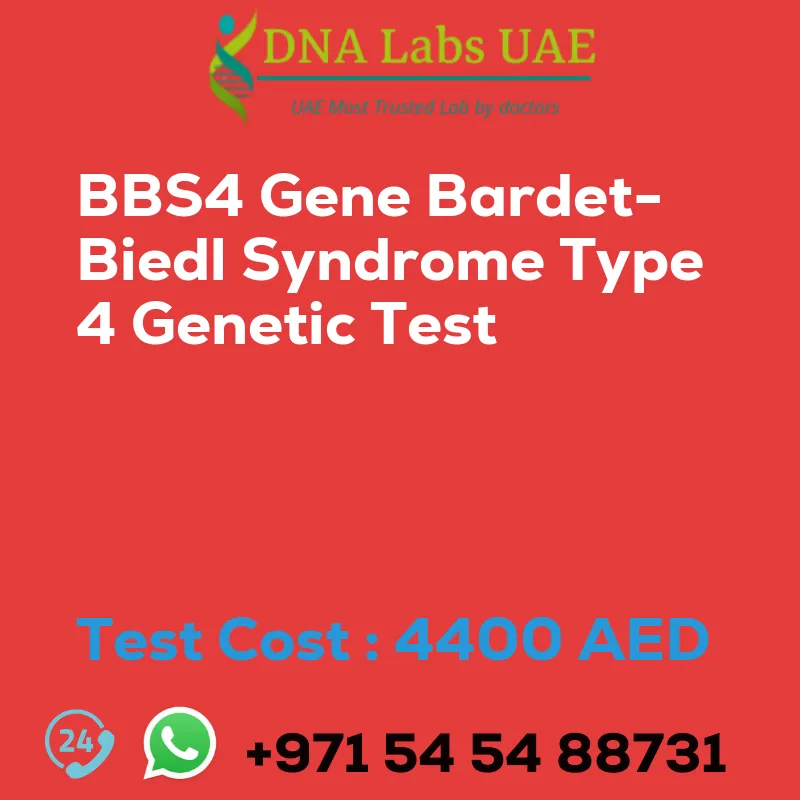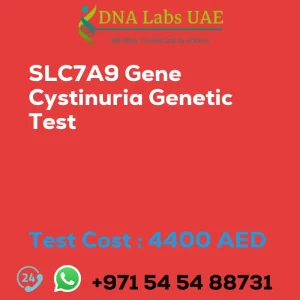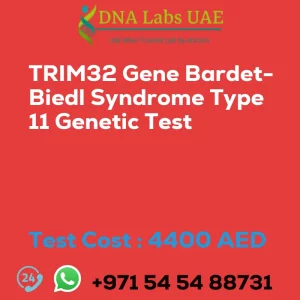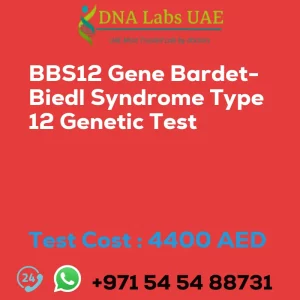BBS4 Gene Bardet-Biedl Syndrome Type 4 Genetic Test
Test Name: BBS4 Gene Bardet-Biedl syndrome type 4 Genetic Test
Components: Blood or Extracted DNA or One drop Blood on FTA Card
Price: 4400.0 AED
Report Delivery: 3 to 4 Weeks
Method: NGS Technology
Test Type: Hepatology Nephrology Endocrinology Disorders
Doctor: General Physician
Test Department: Genetics
Pre Test Information: Clinical History of Patient who is going for BBS4 Gene Bardet-Biedl syndrome type 4 NGS Genetic DNA Test. A Genetic Counselling session to draw a pedigree chart of family members affected with BBS4 Gene Bardet-Biedl syndrome type 4 NGS Genetic DNA Test gene BBS4
Test Details
The BBS4 gene is associated with Bardet-Biedl syndrome type 4 (BBS4), which is a rare genetic disorder characterized by obesity, vision problems, kidney abnormalities, and other symptoms.
NGS (Next-Generation Sequencing) genetic testing refers to a type of genetic testing that uses advanced sequencing technology to analyze multiple genes simultaneously. In the case of BBS4, NGS genetic testing can be used to identify any mutations or variations in the BBS4 gene that may be responsible for causing Bardet-Biedl syndrome type 4.
The NGS genetic test for BBS4 involves obtaining a DNA sample, usually through a blood or saliva sample, and sequencing the BBS4 gene using next-generation sequencing techniques. The results of the test can help diagnose Bardet-Biedl syndrome type 4 and provide information about the specific genetic changes present in the BBS4 gene.
This type of genetic testing can be beneficial for individuals with suspected Bardet-Biedl syndrome type 4, as it can provide a definitive diagnosis and help guide medical management and treatment options. It can also be useful for family members of affected individuals, as it can identify individuals who may be at risk of inheriting the condition.
It’s important to note that genetic testing for BBS4 and other genetic disorders should be performed by a qualified healthcare professional or genetic counselor, who can provide appropriate pre- and post-test counseling and help interpret the results accurately.
| Test Name | BBS4 Gene Bardet-Biedl syndrome type 4 Genetic Test |
|---|---|
| Components | |
| Price | 4400.0 AED |
| Sample Condition | Blood or Extracted DNA or One drop Blood on FTA Card |
| Report Delivery | 3 to 4 Weeks |
| Method | NGS Technology |
| Test type | Hepatology Nephrology Endocrinology Disorders |
| Doctor | General Physician |
| Test Department: | Genetics |
| Pre Test Information | Clinical History of Patient who is going for BBS4 Gene Bardet-Biedl syndrome type 4 NGS Genetic DNA Test. A Genetic Counselling session to draw a pedigree chart of family members affected with BBS4 Gene Bardet-Biedl syndrome type 4 NGS Genetic DNA Test gene BBS4 |
| Test Details |
The BBS4 gene is associated with Bardet-Biedl syndrome type 4 (BBS4), which is a rare genetic disorder characterized by obesity, vision problems, kidney abnormalities, and other symptoms. NGS (Next-Generation Sequencing) genetic testing refers to a type of genetic testing that uses advanced sequencing technology to analyze multiple genes simultaneously. In the case of BBS4, NGS genetic testing can be used to identify any mutations or variations in the BBS4 gene that may be responsible for causing Bardet-Biedl syndrome type 4. The NGS genetic test for BBS4 involves obtaining a DNA sample, usually through a blood or saliva sample, and sequencing the BBS4 gene using next-generation sequencing techniques. The results of the test can help diagnose Bardet-Biedl syndrome type 4 and provide information about the specific genetic changes present in the BBS4 gene. This type of genetic testing can be beneficial for individuals with suspected Bardet-Biedl syndrome type 4, as it can provide a definitive diagnosis and help guide medical management and treatment options. It can also be useful for family members of affected individuals, as it can identify individuals who may be at risk of inheriting the condition. It’s important to note that genetic testing for BBS4 and other genetic disorders should be performed by a qualified healthcare professional or genetic counselor, who can provide appropriate pre- and post-test counseling and help interpret the results accurately. |








